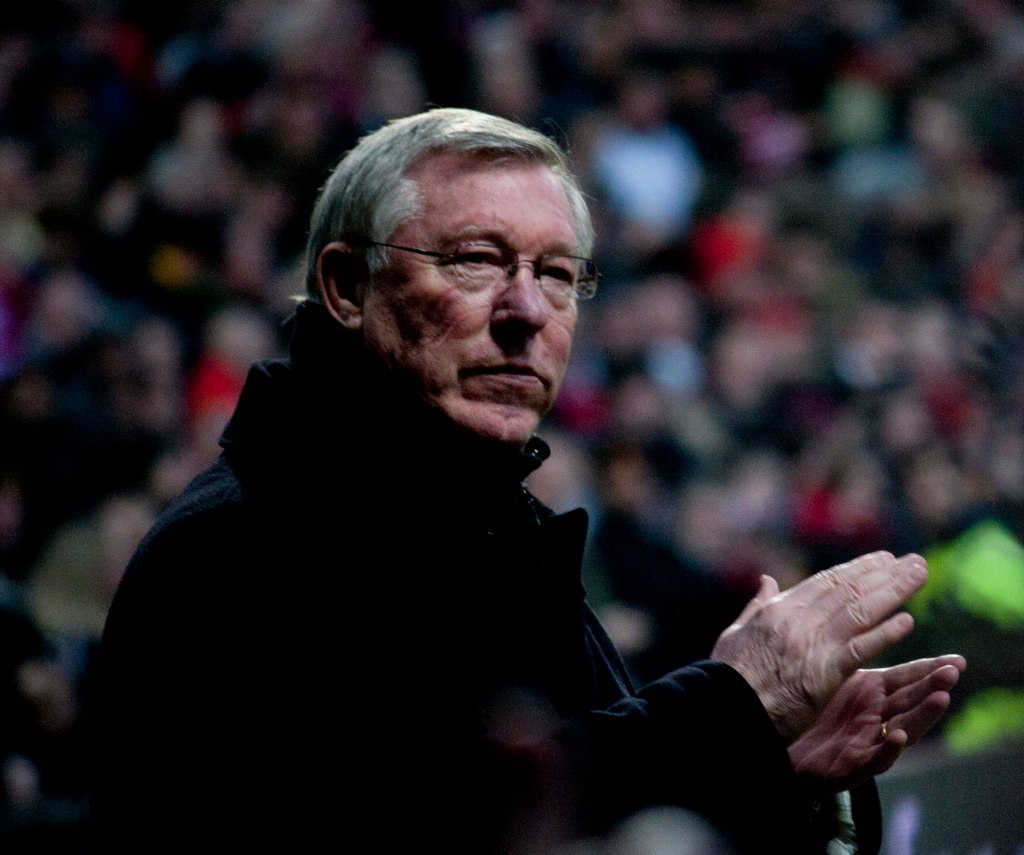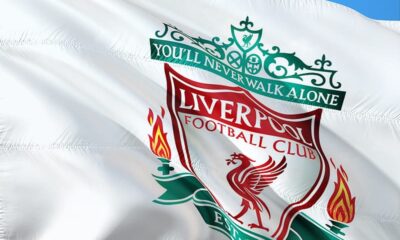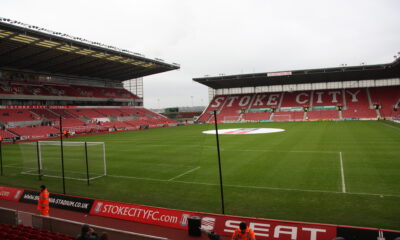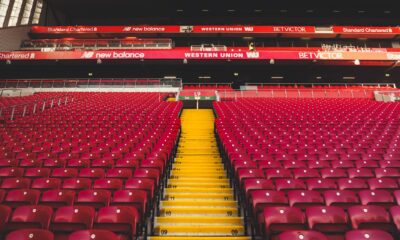Football
Will Anyone Recreate Fergie’s Single Club Success in English Football?

Will Anyone Recreate Fergie’s Single Club Success in English Football?
To say Sir Alex Ferguson changed football forever would be an understatement. For years, he and Manchester United were English football’s (and at times, the world’s) top dog. Stiff competition was met in the form of Arsenal, Chelsea and Manchester City, but none had the longevity or adaptability of Fergie’s Red Devils.
Other managers in the past had won many accolades for a single club in England – Bill Shankly at Liverpool, Matt Busby at Manchester United and George Ramsey at Aston Villa, to name a few. But none did this under the pressures of modern football, where managers seldom last longer than a pair of Apple earphones.
Indeed, it seems the benefactors who own Premier League clubs today all have the same reactionary attitude towards management staff. Either provide immediate success, or you’re gone.
There’s an argument that Fergie’s initial shaky start at Old Trafford would have cost him his job in today’s world. It’s definitely possible, he made some bold decisions, but we’ll never be able to say for sure. United weren’t the international behemoth that they were upon Fergie’s departure when he first arrived. They were still a huge club, one of England’s biggest, but not quite what they would become.
This article isn’t focused on what a club can do for a manager. It’s about what a manager can do for a club. When Fergie signed the dotted line in November of 1986, United hadn’t won a league title since 1967 and hadn’t won the Champions’ League since 1968. Of course, this would soon change.
Sir Alex Ferguson: Never Give In
The definitive portrait of an unrivalled football career
Available on Amazon Prime Video in the UK & Ireland from 29 May 2021 pic.twitter.com/JOrtX7Gqhp— Amazon Prime Video Sport (@primevideosport) February 17, 2021
How was Fergie able to be so consistent?
Fergie was able to adapt amongst the influx of foreign managers and philosophies, spent shrewdly (for the most part) and was a master of mind games. Mind games became all the more important with the advent of the Premier League, given Sky’s desire to turn England’s top flight into a high-budget soap opera.
A key ingredient of Fergie’s longevity was his impeccable man management. Not only could he make players strive for success, he, crucially, made them believe they could be successful. He dealt with a slew of enormous egos in his time, but he was also proficient in keeping these players grounded and focused. It seemed he had a plan for every type of personality. It takes a special kind of psychology to get the best out of both Roy Keane and Eric Cantona.
Fergie would often make canny long-term investments in the transfer window, buying football’s rising stars rather than opting for short term success. Cristiano Ronaldo and Wayne Rooney were both under the age of 20 when Ferguson snapped them up. These signings were often complementary to Manchester United’s stellar youth team products. A lot of key players for Fergie came straight from the academy.
Putting his faith in the academy certainly paid dividends for Fergie. Some may argue that the quality of players coming through was something out of his control, but the decision to make them first team regulars was entirely in his hands.
He would add established world class talent when necessary, like his signings of Edwin Van Der Sar and Robin Van Persie, but was always looking towards the future.
Sir Alex Ferguson’s first and last photographs as Manchester United manager. pic.twitter.com/ngRWaWCLCm
— Alexei (@MUFC_redarmy99) February 15, 2021
Can this be replicated in the current climate?
When the Premier League was first established, it presented a slew of unique opportunities for management staff in England.
New coaching philosophies and ideas from foreign countries had become more accessible than ever before and it was merely a matter of time before they were integrated into English football.
Fergie, ever the opportunist, set about selecting key facets of this to stay ahead of the game. Manchester United’s drinking culture, something that had stunted the careers of past United legends such as George Best, was snuffed out by Ferguson. New fitness regimes and drills were set in place, giving his United team a modern level of efficiency.
This sudden influx of new concepts means it’s important to remember that Fergie’s rise ran alongside an anomalous period of time where England’s top flight was concerned. It allowed him to get ahead of his opposition, many of whom were content with the tried and tested.
However, Fergie wasn’t frightened to embrace new ideas. He put his ego aside and did what was right for the club. Ultimately, everything can be boiled down to this – not just the ability to adapt, but a willingness to do so as well.
To achieve long-term success in modern football, managers must never be frightened to broaden their horizons.
As we have seen in recent times, it is not easy to retain the Premier League. Not every team can do it but Sir Alex Ferguson completed the three-peat, winning a hat-trick of consecutive Premier League titles twice. He did it with the 99 and 08 teams. pic.twitter.com/DJFK4O58hs
— backpasstwithras (@backpasstras) February 15, 2021
Which teams are in a good position as of now?
The two teams that look capable of long-term success under their current manager are Manchester City and Liverpool.
Tottenham are too inconsistent, with Mourinho’s safety-first football becoming more obsolete by the day. Manchester United have done well this season, but lack that creative spark against more defensive sides. Bruno can’t bail them out every week if he’s not given space to operate.
Leicester have looked good and their recruitment has been canny, but they lack the financial pulling power of the top sides. Chelsea have no end of fantastic players in their ranks, but have yet to establish a concrete starting XI. They look turbulent at this point, although their fortunes are beginning to turn after Lampard’s disastrous reign as head coach.
As for Arsenal? That’s worth an entire article on its own.
While Liverpool are currently far from their best, a disappointing campaign may be beneficial to them in the long run. All too often we’ve seen complacency leak into reigning champions, but it can also be attested to their plague of injuries.
Pep Guardiola has his critics, myself included, but the potential he has given Man City is astonishing. Sure, they’ve got the money, however money is nothing if spent unwisely.
Jurgen Klopp's Liverpool plans to copy Alex Ferguson evolution have been scuppered https://t.co/c4aHwb8dNz
— Liverpool FC News (@LivEchoLFC) February 12, 2021
What must these clubs and managers do to equal Fergie?
Simply put, Guardiola needs to win the Champions’ League with Manchester City. He has the players, the finances and the youth academy to do so. More crucially, he’s won it twice before at Barcelona. He’s won everything England has to offer. But, to be blunt, the Champions’ League is the ultimate prize.
Jurgen Klopp has not only done this with Liverpool, but he’s also won them their first ever Premier League trophy. If he resigned at the time this article was written, his time at Liverpool would have to be considered successful.
But will he be able to emulate this success over the course of another couple of decades? This question is especially pertinent when you consider the tactic he is most closely identified with (gegenpress) is slowly but surely being figured out and countered.
This is more of an issue for Klopp than Guardiola because of how reliant Liverpool are on the system. Guardiola tends to be flexible (not always for the better), whereas Klopp drills his players for one style.
Fergie had a system, but he was able to make unique adjustments depending on what team United were playing. We haven’t really seen this level of chameleonic tactical play by Klopp.
This is not to downplay Klopp or Guardiola. They’re both phenomenal coaches, but within English football, they both have a lot to do before they can match Ferguson.
We hope you enjoyed this article ‘Will Anyone Recreate Fergie’s Single Club Success in English Football?’. Do you think anyone can replicate the success that Sir Alex Ferguson had at Manchester United? Let us know!
Read more on football here:
-

 News1 month ago
News1 month agoThe Best Male Tennis Players of All Time
-

 Uncategorised1 month ago
Uncategorised1 month agoWhat Dinosaur Has 500 Teeth?
-

 News1 month ago
News1 month agoThe Fastest Rugby Players Ever
-

 Football1 month ago
Football1 month agoThe Best Penalty Takers of All Time
-

 Football1 month ago
Football1 month ago10 of the most underrated footballers in the world right now
-

 Football1 month ago
Football1 month agoPlayers with the most goals in a Premier League season
-

 Football1 month ago
Football1 month agoWho is the Fastest Football Player in the World?
-

 Football1 month ago
Football1 month agoChelsea’s Possible Lineup For Next Season


















